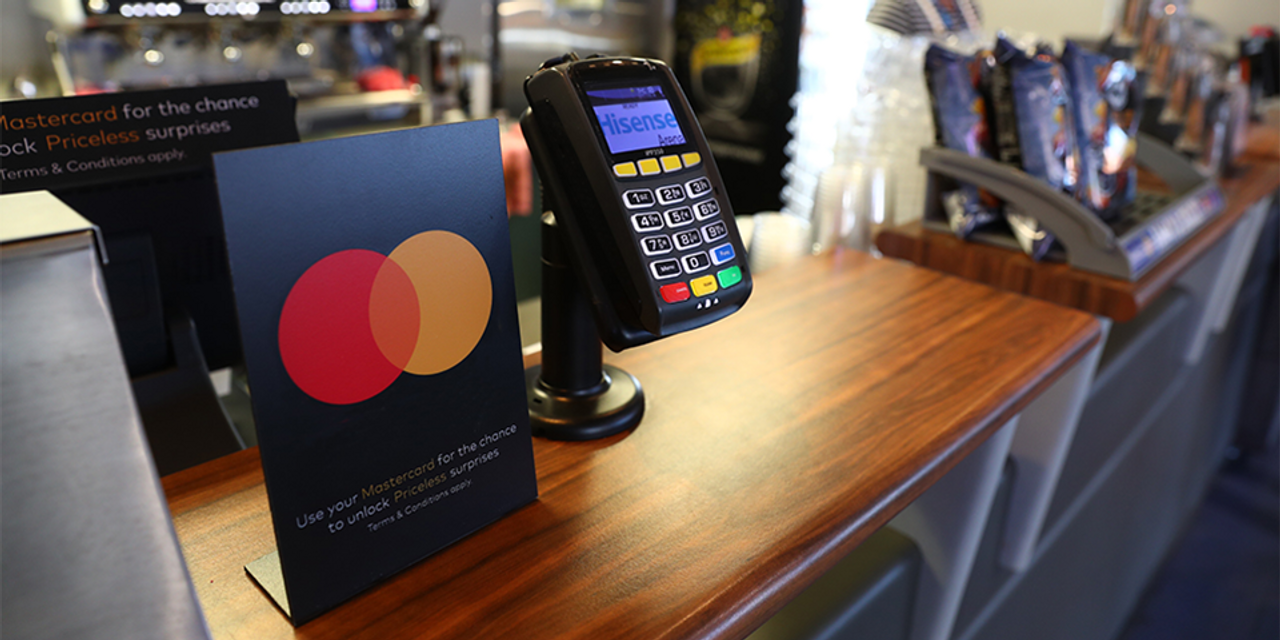Mastercard Inc. became the latest payment-technology company to highlight strong spending as it topped expectations with its latest earnings numbers.
“We’re seeing the consumer across the board show really good trends,” Chief Financial Officer Sachin Mehra told MarketWatch following the report, as Mastercard
MA,
recorded 11% growth in gross dollar volume for its latest quarter.
While various consumer-products companies have recently flagged challenges stemming from low consumer confidence, Mehra said that Mastercard’s results capture spending more broadly, beyond on any one area.
“We’re not a pure play in any one consumer category of spend,” he said. “That diversification benefit is what’s showing up in the numbers.”
The company posted $5.76 billion in revenue, up from $4.99 billion a year earlier and ahead of the $5.65 billion that analysts were anticipating. Mastercard’s headline revenue was up 15%, though the company noted that revenue increased 23% on a currency-neutral basis.
Chief Executive Michael Miebach highlighted on the earnings call that consumers have increased spending on experiences, with airlines, lodging, and restaurants among strong categories. At the same time, the company has seen spending “shift away” from the home furnishing and appliance categories.
The company saw a 9% increase in switched transactions during the quarter, and cross-border volumes rose 44%.
Miebach called out that cross-border travel in the third quarter reached 124% of 2019 levels, and the company has noticed a “notable improvement in Asia.”
While cross-border volumes are typically seen as a proxy for travel spending, that line also includes cross-border e-commerce. Mehra told MarketWatch that cross-border e-commerce spending benefits from the fact that more merchants became “omnichannel” during the pandemic, giving consumers who would have otherwise purchased just domestic items the chance to now shop online at cross-border sellers.
Mastercard reported net income for the third quarter of $2.50 billion, or $2.58 a share, compared with $2.41 billion, or $2.44 a share, in the year-ago period. On an adjusted basis, it earned $2.68 a share, up from $2.37 a share a year before, while analysts tracked by FactSet had been expecting $2.58 a share.
Mastercard’s fourth-quarter outlook calls for revenue growth at the low end of low double digits on a GAAP basis. The forecast also models GAAP operating expense growth at the low end of low double digits.
“The fourth quarter thoughts that I’ve just shared with you are very consistent with what we have shared in our implied fourth-quarter numbers when we gave you our full-year guidance at the last earnings call,” Mehra said on the third-quarter call. He added that the company assumes it will continue to see a “resilient consumer.”
RBC Capital Markets analyst Daniel Perlin wrote that the outlook was “burdened by FX [foreign exchange] and incentive fees.”
Mastercard shares were down 0.5% in Thursday afternoon action.
“The nominal 4Q guidance falling below consensus may hurt the stock today,” Mizuho analyst Dan Dolev wrote. “However, we believe that there is nothing wrong with being prudent. Visa noted recession worries but kept an overly upbeat guide.”
Mastercard’s earnings follow those from Visa Inc.
V,
earlier in the week. Visa’s CFO told MarketWatch Tuesday that the company saw “no evidence of consumers feeling a pinch” in its latest results.
Visa just began its new fiscal year and offered an outlook for high-single-digit revenue growth for the period. That forecast doesn’t bake in a recession scenario, but even so, some analysts thought it might be conservative.
Miebach emphasized on the earnings call that Mastercard was paying attention to economic signals.
“Notwithstanding the continued strength in consumer spending, we will continue to watch the environment closely, including fiscal monitoring and other policy actions taken in response to events,” he said on the earnings call.
In the event of a downturn, Mehra commented that Mastercard is in a different position than it was during the 2008-2009 recession, in part because of its debit mix.
In the last downturn, Mastercard was “very much more a credit-heavy company,” but now it has a “greater balance among debit, prepaid, and commercial,” he told MarketWatch. That’s notable because everyday spending categories skew more toward debit cards.
